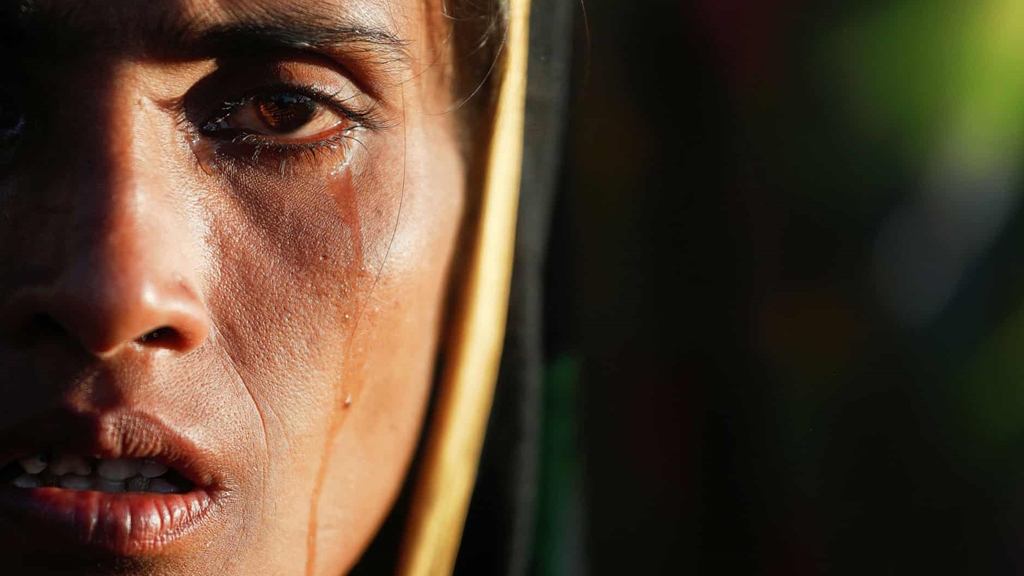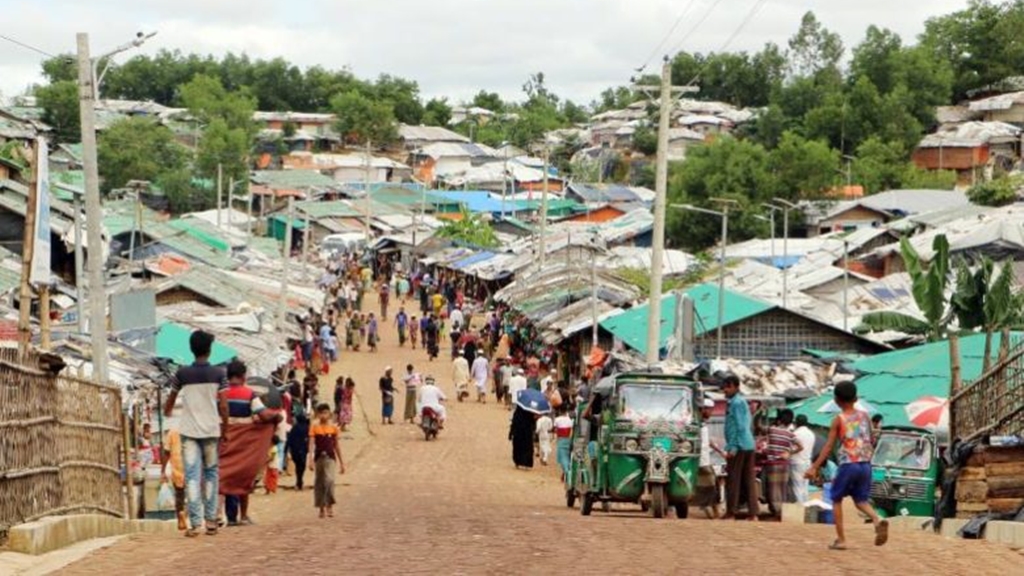
‘We cannot hope for anything good’: Myanmar coup sparks despair for Rohingya
- 14/02/2021
- 0
By Hannah Ellis-Petersen and Shaikh Azizur Rahman, The Guardian
While Aung San Suu Kyi defended a genocidal campaign against the Muslim minority, refugees fear military rule will end dreams of a return home
For the Rohingya Muslims of Myanmar, news of the fall of Aung San Suu Kyi after the military coup was bittersweet.
After all, no community had felt more betrayed by Myanmar’s civilian leader. When she came to power in 2015, the belief was that she would overturn decades of persecution and finally bring about peace and citizenship, following in the footsteps of her father, Gen Aung San.
Instead, under her watch the military carried out their most violent operation against the Rohingya, embarking on a genocidal campaign of rape, pillage and murder in Rakhine state in 2017 and driving almost a million people over the border to Bangladesh as refugees.
Standing before the International Courts of Justice in The Hague in the Netherlands in 2019, Aung San Suu Kyi, a former Nobel peace prize winner, defended the military action.
The Rohingya in Myanmar were also disenfranchised from all democratic participation under Aung San Suu Kyi. They were denied the right to vote and were left off the national census.
Yet, the news of Aung San Suu Kyi’s downfall was met with fear. Since the coup, the man now in charge of Myanmar, Gen Min Aung Hlaing, is the commander who led the ethnic cleansing of the Rohingya in 2017.
Before the coup, attempts at repatriation of the Rohingya had gone nowhere, mainly due to concerns over safety. Despite Min Aung Hlaing’s insistence in a speech on Monday that a repatriation process would continue – which many took to be a hollow promise designed to appease the international community – for the more than a million Rohingya refugees living in camps in Cox’s Bazar, Bangladesh returning to a Myanmar ruled by their persecutors is simply not an option.
“Neither the military nor Aung San Suu Kyi has done anything to restore our rights, alleviate our sufferings and bring those who tortured the Rohingya to justice,” said Hossain Ahammad, a Rohingya who lives in Balukhali refugee camp, Cox’s Bazar, with his wife and three children.
“Still, there was a hope that through a democratic process the justice would be meted out to us. Now, after the military takeover, we cannot hope for anything good for our community in our home country.”
Every military coup that has taken place in Myanmar over the past half century is painfully stained into the Rohingya community’s memory.
It was Myanmar’s first military coup in 1962, led by Gen Ne Win, that laid the foundation of the religious and cultural persecution of the minority that has persisted for more than five decades. Under Ne Win, the Rohingya were stripped of their citizenship and subjected to human rights abuses under the military’s 1978 “King Dragon Operation” which aimed to expel them from Myanmar.
In the takeover of the second military regime, led by Gen Than Shwe, the discriminatory policies against the Rohingya were equally brutal and the military’s “Operation Clean Nation” resulted in the expulsion of a quarter of million Rohingya into Bangladesh in 1991.
In the quasi-civilian government led by Thein Sein, now-former general, their plight worsened further. Under his rule, more than 200,000 Rohingya were uprooted from across Rakhine state in 2012 and forced into displacement camps, where they still live today without access to healthcare, education or livelihoods.
“Any military regimes or civilian-led governments since Myanmar’s first military coup in 1962 have resulted in the deteriorations for the Rohingya,” said Mohammad Rafique, an activist based in Ireland.
He added: “The new military regime of Min Aung Hlaing only brings up painful memories for us. Whenever a new government came to power, Rohingya were provided false hope and promises, which were then shredded into pieces.”
The mood in the camps of Cox’s Bazar is now one of anger and frustration. Although multiple attempts to repatriate the Rohingya to Myanmar have failed over the lack of assurances by Aung San Suu Kyi’s civilian government that they would be safe, many of the refugees still believed they would eventually be able to go back.
“We all want to go back to our homeland but we cannot return as long as the military is in power,” said Jafar Alam, a Rohingya refugee who has been living in Cox Bazar’s Kutupalong refugee camp since 2012.
“The brutal torture by the military led by Min Aung Hlaing forced the Rohingya to flee Myanmar. The wound of that torture and mayhem is still fresh in the mind. Now that this army general is in supreme power, no Rohingya will feel safe to return to Myanmar.”
Following the coup, Bangladesh has stepped up security along its border to prevent a fresh influx of Rohingya refugees.
The Bangladeshi government, which has become increasingly frustrated at the millions of refugees living in the country, has repeatedly said that repatriation would happen this year. A meeting between officials from Bangladesh, Myanmar and China said Rohingya would begin to return in June.
Bangladesh’s foreign minister, AK Abdul Momen, has been insistent that a change in regime in Myanmar would not impede repatriation.
“We made the agreement for repatriation with the government in Myanmar, not with any individual. We will continue to remain engaged with the process of repatriation with the government in Myanmar, despite the regime has changed there,” he said.
“We want to continue talks with Myanmar to advance the ongoing process of repatriation,” he added. “Repatriation to Myanmar is the only solution to the Rohingya crisis.”






